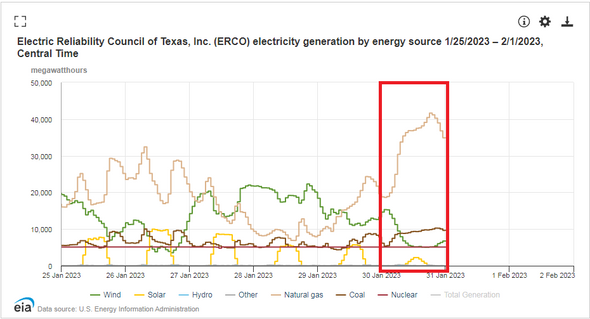“Typical mid-priced ICE car drivers paid about $11.29 to fuel their vehicles for 100 miles of driving,” concluded a study from consulting firm Anderson Economic Group. “That cost was around $0.31 cheaper than the amount paid by mid-priced EV drivers charging mostly at home, and over $3 less than the cost borne by comparable EV drivers charging commercially.”
Oh, and let’s not forget that time is money. You have to spend an average of $18 per charge and spend 15 minutes per 100 miles traveled. Good luck on your family road trip this summer with the baby screaming in the car who was woken up after finally taking a nap, thanks to the incessant need to stop.
The only benefit the Michigan-based consulting firm found to fueling EVs over traditional cars was, of course, among the high-end luxury cars used by the elites promoting these products.
This is astounding given the record-high gas prices this past year, especially for winter months. This means that even after spending more money for the purchase of an EV, you are saddling yourself with a boondoggle to maintain. The problem for the parasitic, venture socialist industry is that the very regressive green policies that are harming the oil and car industries are doing even more damage to the electric grid. Thanks to the war on coal, oil refineries, and pipelines and the stagnation of nuclear energy by the same radical eco groups, electricity prices are skyrocketing even more than gasoline. All that “investment” in solar and wind is not there for us during our time of need. Now we face the prospect of electric grid failures more acutely than even oil and gas shortages.
Just consider what would happen during these heat waves if we only had electric vehicles. California grid operators warned people during last summer’s heat wave to ease off charging their cars. Now imagine if they had their way and 100% of cars were electric and 100% of the electricity was generated from wind and solar. Well, you’d be stuck at home … which is exactly how they want it.
Biden’s signature legislation last year handed out over $50 billion to the electric vehicle industry, including $7.7 billion for EV charging stations and $10.3 billion in grid and battery subsidies. But just like money can’t buy you love, it also can’t buy you efficacy, efficiency, or safety. Despite all of the corporate welfare for green energy, it’s still natural fuels from the earth that are holding up Texas’s grid during this cold spell and ice storm in the northern part of the state.
What was powering northern Texas during the ice storm? As the Energy Information Administration data shows, natural gas was the star player while wind collapsed, despite Texas throwing tens of billions of dollars at it.
As for efficiency, a 2021 study shows that even if EVs were more economical post-purchase in terms of fueling per mile, there are fewer miles to monetize those returns. According to the paper from the Bureau of Economic Research, the average family EV only racked up 5,300 miles per year, less than half the 13,476 miles per year driven by normal privately owned cars. Thus, the savings in operating these cars was always a mirage because they are just driven less. They could never possibly replace internal combustion vehicles, just like wind and solar cannot replace oil, gas, and coal for electricity and fuel. Yet the government has mandated automobile manufacturers to quadruple the market share of EVs in their fleets.
Then, of course, there is the issue of safety. Recently, it was found that during Hurricane Ian, electric vehicles caught in the storm surge in southwest Florida were suddenly exploding. DeWalt’s new no-turn electric mower also seems to have problems, as one model caught fire on the opening day of Equip Expo 2022. These are the sorts of issues that are worked out when a product has to rise or fall in the free market without a permanent guarantee of income. But with endless subsidies, we can only imagine the economic and societal problems from an EV-only road show.
Moreover, what this all demonstrates is that EVs were never meant to replace traditional cars to fulfill our needs and standard of living. They are serving as a Trojan horse to break our standard of living so that we will “own nothing and be happy,” as the WEF officials like to say. They want us to pay a fortune for cars and then barely be able to drive them because of the cost of electricity that they are concomitantly and artificially increasing thanks to other global warming regulations and market distortions.
Oh, and of course, no action taken against our prosperity, liberty, and mobility is complete unless it helps China. We all know China controls 76% of global EV battery production, and the nickel, cobalt, and lithium used to produce these batteries are all produced abroad. So now we are subsidizing China and other bad actors to make the rope that hangs our economy, which is pretty much in line with every other government policy. All they need now is to absolve these companies of product liability, and they will be just like the COVID shots.
So why do Republican governors
continue to service the electric vehicle scam? Why do they continue to place the boot of government on the scale toward these loser vehicles? The time has come for red states to completely divest from the green energy scam.

 Like TURF
Like TURF Follow TURF
Follow TURF
